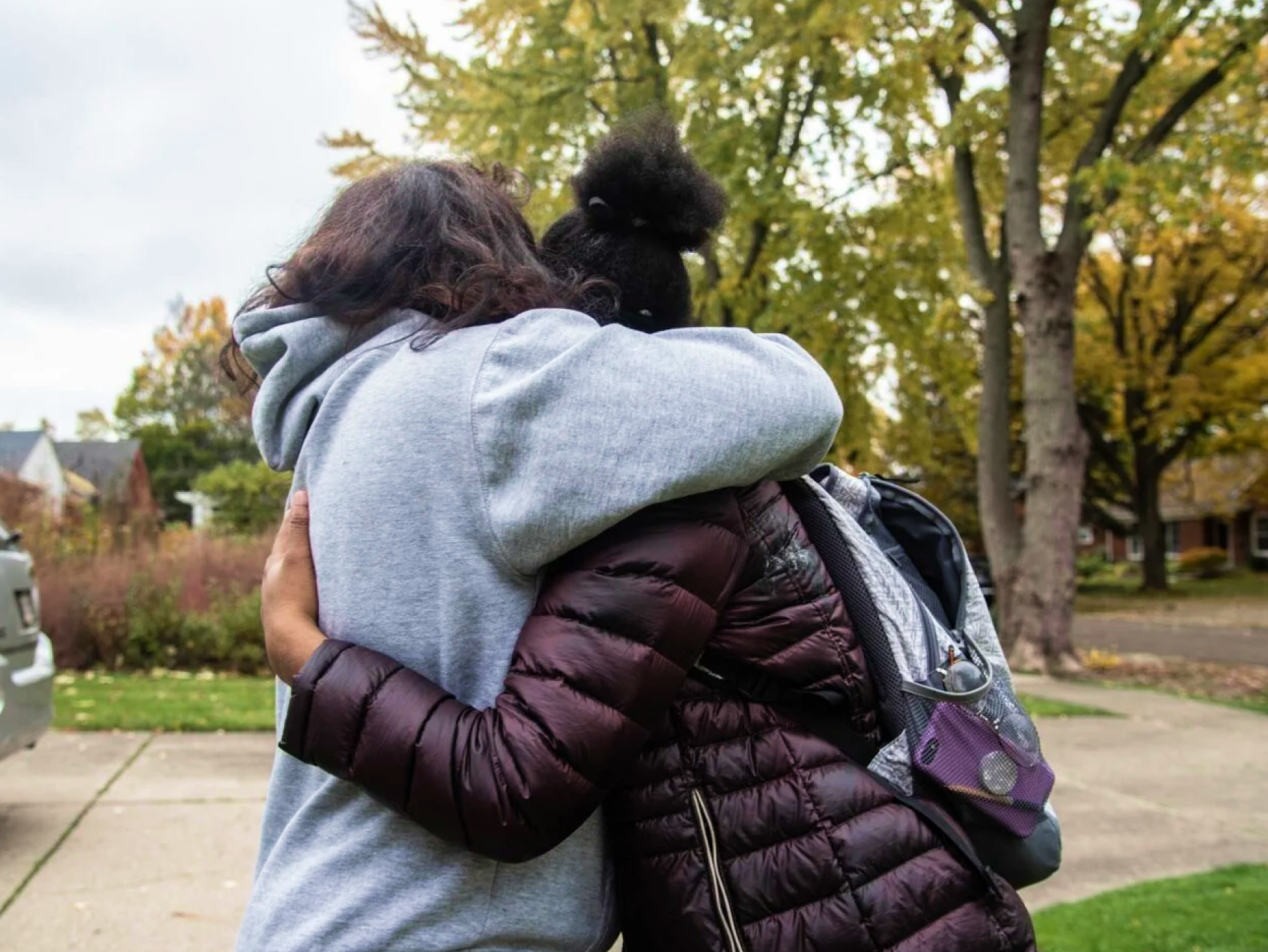Grace* a 16-year-old girl in Michigan, was a sophomore in high school with nearly perfect attendance. When her school shut down and turned to remote learning because of the COVID-19 pandemic, Grace’s mother worried how she would adapt without in-person support. Grace has ADHD and a mood disorder, and would get distracted easily without supervision.
When remote learning began, Grace no longer received the Individualized Education Plan, which during in-person school required teachers to check in to make sure she was on task and clarify the material, allowing her extra time to complete assignments and tests.
Less than a month into remote learning, she reportedly felt unmotivated and overwhelmed without structure. Like thousands of students in her district, Grace struggled to complete her schoolwork. Except unlike the rest of her peers, because of Grace’s probation status a judge sentenced her to a juvenile detention facility, ruling that Grace’s failure to complete her schoolwork violated her probation.
Grace was originally sentenced to probation in April 2020. She was charged with theft and assault in two separate instances after stealing a classmate’s cell phone and getting into a fight with her mother. The terms of Grace’s probation included regular check-ins with a court caseworker, counseling, no cell phone, GPS monitoring, and the completion of schoolwork.
Grace’s probation sentence began a week after her school turned to remote learning. She tried her best to succeed under her new circumstances but felt anxious and overwhelmed. She checked in with her caseworker every morning, didn’t leave the house, and didn’t break any laws. She even did her best academically, even though she didn’t have the same support learning virtually as she did in the classroom.
One morning, Grace went back to sleep after checking in with her caseworker. She had been having trouble getting into a healthy sleep routine that week. Her caseworker filed a violation of probation against her for not doing her schoolwork. Three days later, the caseworker emailed Grace’s teacher. Her teacher told her Grace was “trying to get to the other side of a steep learning curve mountain and we have a plan for her to get there.”
On May 14, a judge sentenced Grace to a juvenile detention center in suburban Detroit. Even though the Michigan Governor had encouraged courts to keep children home to help limit the spread of COVID-19 behind bars, the judge deemed Grace a “threat to (the) community.” Attorneys and advocates in Michigan and elsewhere say the decision flies in the face of recommendations from the legal and education communities that have urged leniency and a prioritization of children’s health and safety amid the crisis.
In July, Grace’s story received national attention. #FreeGrace trended online, and hundreds of thousands of people signed petitions demanding her release. Grace was released after spending 78 days in juvenile detention.
As Grace told hundreds of Black women and girls and educators at a conference this fall, “Your past does not define you. I learned that so well in these last months.”
*Grace is the teenager’s middle name and is being used out of privacy concerns
